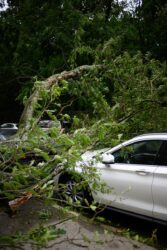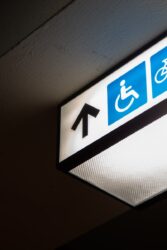Kinship care in Alberta is a child welfare arrangement where children or youth in need of care are placed in the homes of extended family members or individuals with whom
Author: Know Alberta

What is Legal Separation in Alberta?What is Legal Separation in Alberta?
Legal separation in Alberta refers to the formal process where married couples decide to live apart while remaining legally married. This arrangement covers various aspects, including child custody, spousal and

What is a Legal Land Description in Alberta?What is a Legal Land Description in Alberta?
A legal land description (LLD) in Alberta is a standardized method used to identify and describe parcels of land within the province accurately. Essential for real estate transactions, legal documentation,

What is an MSFAA Number in Alberta?What is an MSFAA Number in Alberta?
In Alberta, the Master Student Financial Assistance Agreement (MSFAA) number is a unique identifier for students approved for full-time funding through federal and provincial student loans and grants. This agreement

What is No-Fault Insurance in Alberta?What is No-Fault Insurance in Alberta?
No-fault insurance in Alberta represents a pivotal component of the province’s auto insurance framework, ensuring that individuals receive compensation for vehicle damages irrespective of who is at fault in an

What is a NUANS Number in Alberta?What is a NUANS Number in Alberta?
In Alberta, the Newly Upgraded Automated Name Search (NUANS) report plays a critical role for businesses and non-profit organizations during the incorporation process. It is a comprehensive name search report

What is Alberta’s Version of ODSP?What is Alberta’s Version of ODSP?
In Alberta, the Assured Income for the Severely Handicapped (AISH) program serves as a vital financial assistance initiative, akin to Ontario’s Ontario Disability Support Program (ODSP), but tailored to meet

What Is Power of Attorney in Alberta?What Is Power of Attorney in Alberta?
In Alberta, an enduring power of attorney is a legal document that allows an individual (the “donor”) to appoint another person (the “attorney”) to make financial decisions on their behalf.

What Is the Real Estate Commission in Alberta?What Is the Real Estate Commission in Alberta?
In Alberta, the typical real estate commission structure involves a combined fee for both the buyer’s and seller’s agents. This fee is usually 7% for the first $100K of the

What Is Recyclable in Alberta?What Is Recyclable in Alberta?
Alberta’s commitment to environmental sustainability is evident through its robust recycling programs, which accommodate a wide range of materials. These initiatives are designed to reduce waste and promote the reuse

